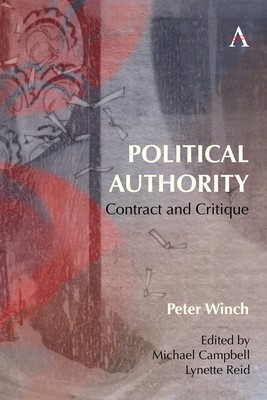
- We will send in 10–14 business days.
- Author: Peter Winch
- Publisher: Anthem Press
- ISBN-10: 1839991658
- ISBN-13: 9781839991653
- Format: 15.2 x 22.9 x 1.9 cm, kieti viršeliai
- Language: English
- SAVE -10% with code: EXTRA
Reviews
Description
Winch is best known as the founder of post-war analytic philosophy of the social sciences, and as one of the rare post-war British philosophers who engaged with continental thought, in particular Simone Weil (on whom he wrote a book), Jürgen Habermas, and Karl-Otto Apel. Throughout his career, he also wrote on issues in political philosophy, with particular focus on questions to do with the legitimacy of the state and on the philosophies of Hobbes, Locke, Rousseau, and Simone Weil. Materials toward a book on the topic have lain in the Peter Winch archives since then, accessible only to philosophers able to visit in person. In this volume these notes are published in full, supplemented by selections from Winch's late lectures on law and authority and cross-referenced with his published discussions of political philosophy and related topics (e.g., punishment, agency).
In these unpublished writings, Winch diagnoses problematic assumptions about agency and about the relationship between language and society as these shape the social contract tradition. Winch's critique of misconceptions of individual agency in political philosophy focuses the attention away from reasons for action discourse and toward the complex and socially constituted relations between agency, justice, and force. Following Wittgenstein's injunction that a philosopher should always avoid hasty generalisation, Winch's approach to questions of the legitimacy of the state is marked out by sensitivity to contextual features, including the needs and interests which influence the form that such questions take, whether those be securing peace in civil war (Hobbes), defending a nation from fascism (Weil), or rationalizing the seizure of indigenous lands by conquest (Locke).
EXTRA 10 % discount with code: EXTRA
The promotion ends in 22d.12:08:12
The discount code is valid when purchasing from 10 €. Discounts do not stack.
- Author: Peter Winch
- Publisher: Anthem Press
- ISBN-10: 1839991658
- ISBN-13: 9781839991653
- Format: 15.2 x 22.9 x 1.9 cm, kieti viršeliai
- Language: English English
Winch is best known as the founder of post-war analytic philosophy of the social sciences, and as one of the rare post-war British philosophers who engaged with continental thought, in particular Simone Weil (on whom he wrote a book), Jürgen Habermas, and Karl-Otto Apel. Throughout his career, he also wrote on issues in political philosophy, with particular focus on questions to do with the legitimacy of the state and on the philosophies of Hobbes, Locke, Rousseau, and Simone Weil. Materials toward a book on the topic have lain in the Peter Winch archives since then, accessible only to philosophers able to visit in person. In this volume these notes are published in full, supplemented by selections from Winch's late lectures on law and authority and cross-referenced with his published discussions of political philosophy and related topics (e.g., punishment, agency).
In these unpublished writings, Winch diagnoses problematic assumptions about agency and about the relationship between language and society as these shape the social contract tradition. Winch's critique of misconceptions of individual agency in political philosophy focuses the attention away from reasons for action discourse and toward the complex and socially constituted relations between agency, justice, and force. Following Wittgenstein's injunction that a philosopher should always avoid hasty generalisation, Winch's approach to questions of the legitimacy of the state is marked out by sensitivity to contextual features, including the needs and interests which influence the form that such questions take, whether those be securing peace in civil war (Hobbes), defending a nation from fascism (Weil), or rationalizing the seizure of indigenous lands by conquest (Locke).


Reviews